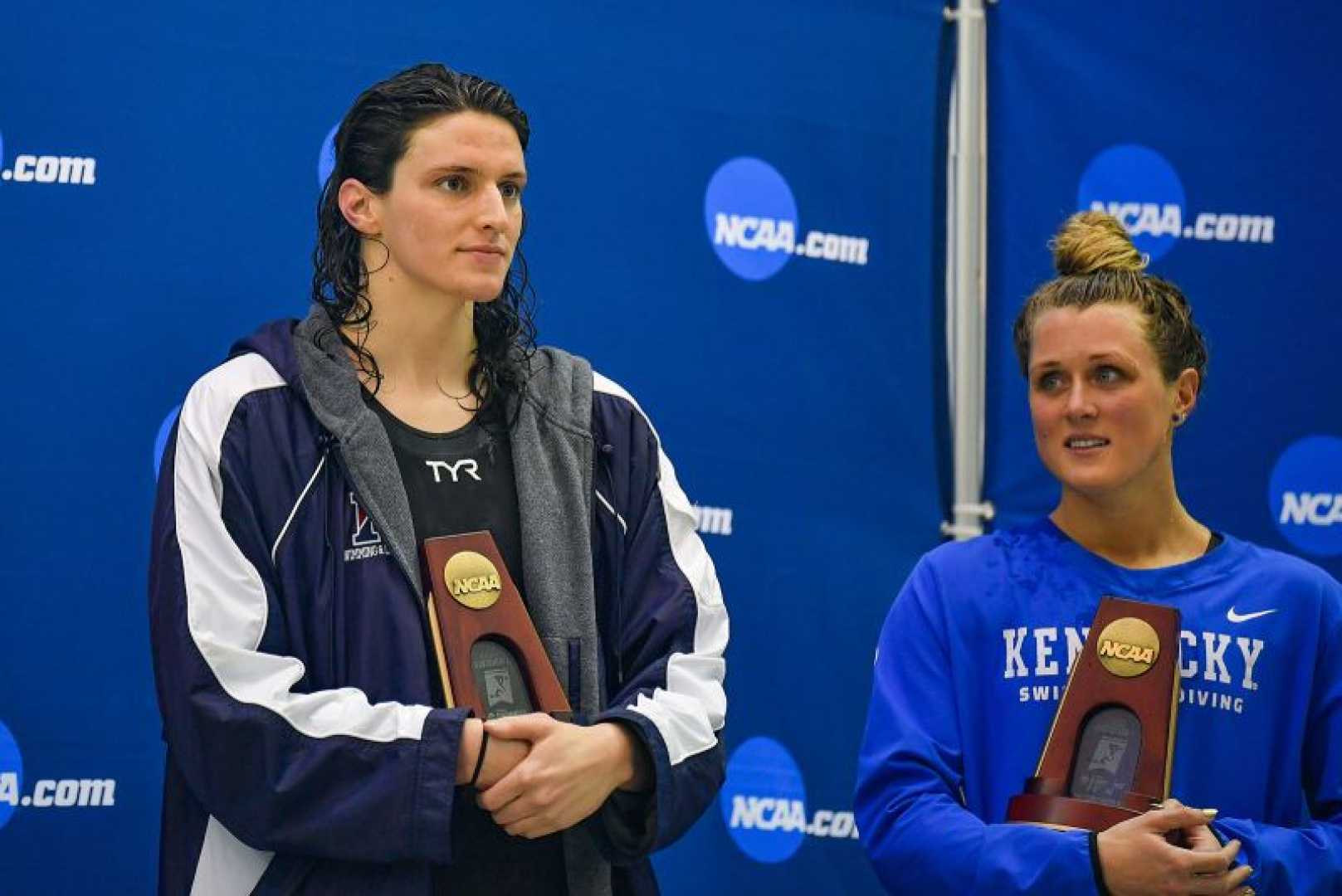Sports
Riley Gaines Activates Movement Against Trans Women in Sports

PHILADELPHIA, PA — Former University of Kentucky swimmer Riley Gaines has transformed her fifth-place tie with Lia Thomas into a campaign against trans women competing in sports. This week, the University of Pennsylvania, where Thomas swam, announced it would erase all records associated with Thomas and prohibit future trans athletes from participating in women’s sports.
The university plans to issue personal apologies to female swimmers affected by its decision to allow Thomas to compete. Gaines expressed her feelings of vindication via social media, stating, “I have been relentless in this pursuit for the past three years.” She is now anticipating an apology from the University of Pennsylvania.
This controversy began after a tie during the 200-yard freestyle event at the 2022 NCAA championships, where both Gaines and Thomas finished fifth. Thomas made headlines the day before by becoming the first transgender athlete to win an NCAA Division I title. Gaines recalled feeling “surprised” when the results showed they tied, and her frustration only grew when she received a sixth-place trophy while Thomas held the fifth-place award.
At the center of this debate is whether trans women possess an athletic advantage over those assigned female at birth. Research on the performance of trans athletes is limited, but NCAA President Charlie Baker has stated there are fewer than 10 known trans student athletes among the 500,000 competing in collegiate sports.
Despite the rarity of trans participation in women’s sports, Gaines, along with some conservative lawmakers, has intensified advocacy to prevent trans athletes from competing. A recent survey indicates that while many support laws protecting transgender individuals, a significant number also favor policies that require athletes to compete based on their sex assigned at birth.
Initially, Gaines did not blame Thomas personally, stating, “I support her transition and her swimming career.” However, as her platform has grown, so has the scope of her rhetoric. Recently, she testified before Congress, declaring, “Let me be perfectly clear: a school that knowingly allows a male athlete to take a spot on a women’s team is denying female students athletic opportunities. That is sex discrimination.”
This weekend, UPenn’s announcement coincided with the enactment of a Georgia law banning transgender women from competing in female sports. Gains celebrated the development, viewing it as a necessary step to ensure fairness for women in athletics. Critics, however, warn that these movements risk discriminating against a minority of athletes who yearn to compete.
In response to growing opposition, trans-rights advocates emphasize the importance of inclusivity, noting that participation in sports offers significant mental health benefits for transgender individuals. Medical professionals also affirm that prejudice against trans athletes can lead to severe mental health issues.
Gaines has since seen her views evolve and has emerged as a key figure in the anti-trans movement in sports, leveraging her past experiences to fuel her activism. With a podcast and an upcoming autobiography, she solidifies her position in a tumultuous debate.
Thomas has preferred to remain silent publicly, focusing instead on legal avenues for her rights. Last year, her aspirations for competing in the Paris Summer Olympics faced setbacks when a judicial panel ruled against her standing.












